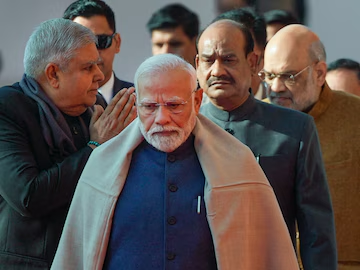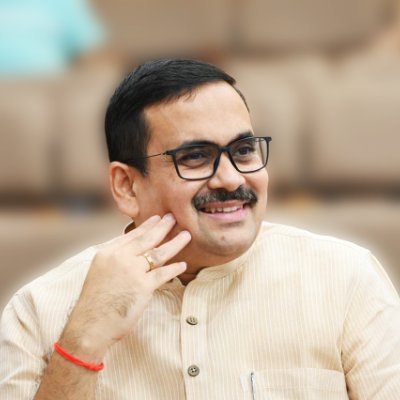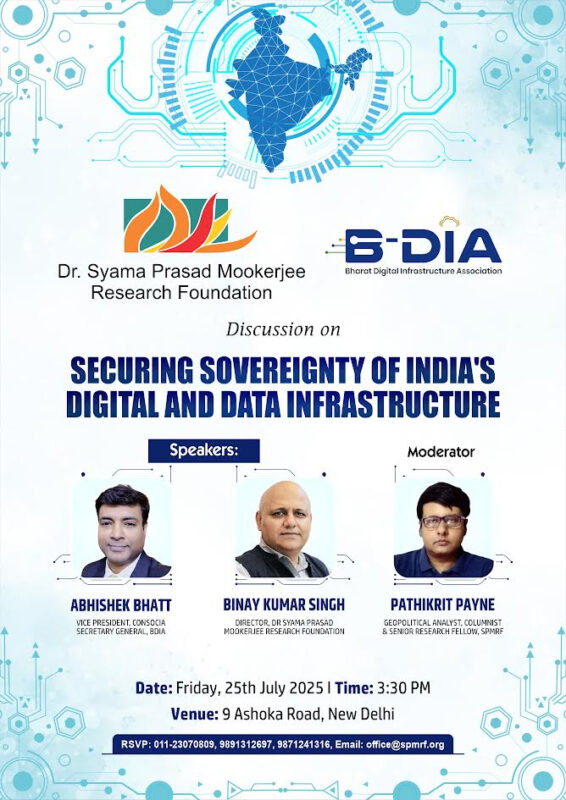Prime Minister Narendra Modi’s reply to the debate on the Constitution will go down in the annals of India’s parliamentary history as a historic and unprecedented address. It articulated the challenges that the Constitution faced for over five decades, and it spoke of those towering framers of the Constitution who instilled in it a spirit of resilience and renewal. It also delineated a future for India driven and shaped by the Constitution. Like the Panch Pran pledge that he had articulated earlier, Prime Minister Modi’s eleven pledges, emphasising our collective duties to be realised through the Constitution, were thought-provoking and inspiring.
Prime Minister Modi’s reference to Dr Ambedkar, and the manner in which the Congress establishment sought to erase his giant imprints which contributed to national regeneration, his reference to how late Atal Bihari Vajpayee had doggedly adhered to Constitutional principles, and how the celebration of the Constitution was an initiation launched not by the Congress but the BJP, brought in home truths that ought to be always kept afloat. Especially his references from history, to the Congress’s first family’s propensities to maul the Constitution and to repeatedly taste its blood and to treat it as its pocketbook, are points that need constant dissemination. Such unceasing propagation would be a true service to the spirit of the Constitution.
When PM Modi questioned the need for the first amendment to the Constitution just fifteen months after it was passed and adopted, I was reminded of the titanic battle between Dr Syama Prasad Mookerjee and Pandit Nehru, who was then hellbent on amending the Constitution so that the Nehruvian hegemony could be firmly established. Why was there a need to rush it, Prime Minister Modi asked, when an elected Parliament had not yet come into effect, when it was only a provisional Parliament, and when the House of Elders had not yet been constituted.
In fact, by early 1951, writes historian Tripurdaman Singh in his, ‘Sixteen Stormy Days’, a study of the First Amendment debate, Nehru “had grown increasingly exasperated…impatient and stubborn at the best of times, he chafed at the temerity of those who came in his way.” He found the situation “intolerable” and wrote to his chief ministers that a remedy would have to be found “even though this might involve a change in the Constitution.” The Constitution that the Congress had promoted less than a year ago, writes Singh, “now became its bugbear.” He was also unnerved by Dr Mookerjee’s, the Organiser Weekly’s trenchant criticism of Pakistan. Nehru would tolerate no criticism, and especially the demand that Pakistan must cede land if it could not take care of its minorities irked him immensely.
Opposition to the first amendment came from a cross-section of leaders of various hues and predilections. Besides Dr Mookerjee, notable figures included M.R. Jayakar, Acharya Kripalani, Jayaprakash Narayan, H.V. Kamath, and Syamnandan Sahay, as well as jurists such as Pran Nath Mehta and M.C. Chagla, alongside a host of editors, lawyers, businessmen, and press associations. Nehru and the Congress, Singh argues, “were bent on pruning fundamental rights,” while Dr Mookerjee and the RSS championed “individual freedom and civil liberties.” In an impassioned plea, Dr Mookerjee accused Nehru of “treating this Constitution as a scrap of paper.”
In his spirited and unassailable riposte, Dr Mookerjee pointed out how “we spent nearly four years to frame this Constitution. It was not hurriedly done. Take this Chapter on Fundamental Rights. A special committee was appointed of which the Prime Minister himself was the Chairman. How many months, how many years did we not take to weigh every single paragraph, every single sentence and every single word of that chapter…We were criticized by the people outside the Constituent Assembly that we were taking too long a time. But many of us justified this delay because we were anxious that nothing should be done hastily or on the spur of the moment. We were doing something that was unique in the annals of this country, something indeed, to which there are not many parallels in the entire civilized world…If that is so, why this indecent haste to change such a Constitution?”
The Prime Minister, Dr Mookerjee told Parliament, “knows it in his heart of hearts, that what he is going to do is nothing short of cutting at the very root of the fundamental principles of the Constitution.” It was a “challenge he had deliberately thrown up at the people of India.”
Dr Mookerjee exhorted the House, which heard him in astounded silence, to stand up against “this encroachment on the liberty of the people of Free India”, cautioning Members that the “saddest epitaph which can be carved in memory of a vanished liberty is that it was lost because its possessors failed to stretch forth a saving hand while yet there was time.” Dr Mookerjee’s words invited “protracted applause from all quarters” which included “several senior Congress members.”
It was indeed a recurring saving grace that each time Nehru and his political heirs mauled the Constitution, Dr Mookerjee’s political progenies “stretched forth a saving hand.” While we celebrate the Constitution, it is a truth which cannot be ignored.
(The views expressed are the author's own and do not necessarily reflect the position of the organisation)



